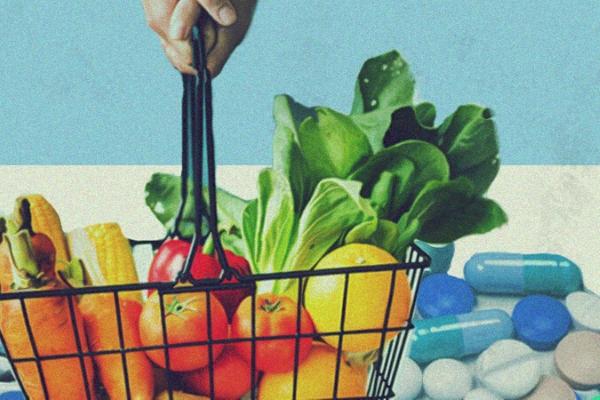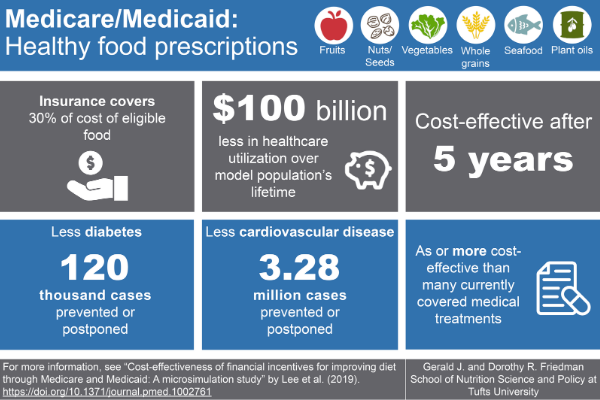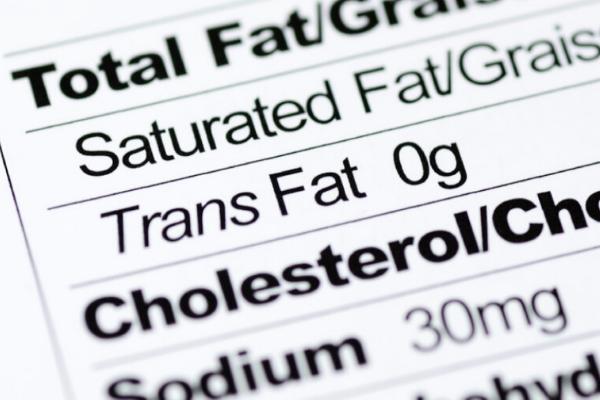News about nutrition and food is always a hot topic in the media, perhaps because the issues that surround food are both intensely personal and completely public. Few other topics connect with people in this way, making our translation of the latest research in nutrition science and policy that much more meaningful to the general public.
Even if every one of our research projects and activities this year didn't make the front-page news, they all made an impact in the world. From planetary health and personal health to entrepreneurship and events, here's what made our front page this year!

FDA Added Sugar Labeling
The Food and Drug Administration’s (FDA) mandatory added sugar labeling policy for packaged foods and beverages, set to take effect between 2020 and 2021, could be a cost-effective way to generate important health gains and cost-savings for both the healthcare system and society in the U.S., according to a new modeling study. The analysis is the first to estimate the potential health and economic impacts of the new label.
Authors from the Friedman School: first author Yue Huang; Junxiu Liu, postdoctoral scholar; Yujin Lee, postdoctoral scholar; Parke Wilde, professor; and Dariush Mozaffarian, dean.
Nutrients From Food, Not Supplements
Adequate intake of certain nutrients is associated with a reduction in all-cause mortality when the nutrient source is foods, but not supplements, according to a new study. There was no association between dietary supplement use and a lower risk of death. In addition, excess calcium intake was linked to an increased risk of cancer death, which the researchers found was associated with supplemental doses of calcium exceeding 1,000 mg/day.
Authors from the Friedman School: First author Fan Chen, M.S., MPH, (conducted this work as a student at the Friedman School and Tufts University School of Medicine); Mengxi Du, doctoral student; Jeffrey B. Blumberg, research professor; Gail Rogers, HNRCA senior statistician, Friedman School instructor; and Zhilei Shan.


Prescribing Healthy Food in Medicare/Medicaid
A team of researchers modeled the health and economic effects of healthy food prescriptions in Medicare and Medicaid. The study finds that health insurance coverage to offset the cost of healthy food for Medicare and/or Medicaid participants would be highly cost effective after five years and improve health outcomes.
Authors from the Friedman School: Co-First Authors Yujin Lee, post doctoral scholar; and Dariush Mozaffarian, dean; Co-Senior Author Renata Micha, research associate professor; Yue Huang; Junxiu Liu, postdoctoral scholar; and Parke Wilde, professor.
Hurricane Katrina and CVD Hospitalizations
A study from researchers and scholars at Tufts University examined changes in the number of cardiovascular disease (CVD) hospitalizations before and after Hurricane Katrina, and the disparate effect of the natural disaster on black and white older adults in Louisiana.
Authors from the Friedman School: Co-First Author Elena N. Naumova, professor; Gitanjali Singh, assistant professor.


The Price to Leave Facebook
Using a series of auctions – in which people were actually paid to close their accounts for as little as one day or as long as one year – researchers found that Facebook users would require an average of more than $1,000 to deactivate their account for one year.
Author from the Friedman School: Sean B. Cash
Food Label Effects on Consumption
A systematic review and meta-analysis of interventional studies headed by Food-PRICE, a research group based at the Friedman School finds food labels have led to changes in consumers’ intake of select nutrients and industry’s use of key additives.
Authors from the Friedman School: Senior Author Dariush Mozaffarian, dean; Pelin Shi, biostatician; and Renata Micha, research associate professor


Restaurant Portions, a Global Problem
A new multi-country study found that large, high-calorie portion sizes in fast food and full service restaurants is not a problem unique to the United States. An international team of researchers found that 94 percent of full service meals and 72 percent of fast food meals studied in five countries contained 600 calories or more.
Authors from the Friedman School: First Author Susan Roberts, professor; Christina Economos, professor.
Jean Mayer Prize Winners Announced
The Friedman School awarded the inaugural $100,000 Jean Mayer Prize for Excellence in Nutrition Science and Policy to two individuals and two organizations for their collective efforts to raise awareness of the risks of diet-related disease and advocacy for policies that champion better nutrition for younger generations.


Inflammation and Obesity
A study found that inflammatory proteins in the colon increase incrementally with weight. Secondary findings suggested that NSAIDs may lower the levels of pro-inflammatory proteins in the colon.
Authors from the Friedman School: Senior author Joel B. Mason, professor and director of the Vitamins and Carcinogenesis Laboratory at the HNRCA; and first author Anna C. Pfalzer, a Ph.D. graduate in biochemical and molecular nutrition from the Friedman School.
Dairy Fat Consumption and Type 2 Diabetes
Higher levels of biomarkers of dairy fat consumption are associated with lower risk of developing type 2 diabetes, according to new research. The study in more than 60,000 adults was undertaken by the FORCE Consortium led by scientists at the Medical Research Council Epidemiology Unit, University of Cambridge, and the Friedman School.
Author from the Friedman School: Senior author Dariush Mozaffarian, dean.


Making SNAP Healthier (Incentives and Disincentives)
A new Food-PRICE study modeled the health effects and cost-effectiveness of three policy interventions to incentivize healthier eating in the Supplemental Nutrition Assistance Program (SNAP). The study estimated that $6.77 billion to $41.93 billion could be saved in healthcare costs over the model cohort’s lifetime by incorporating specific food incentives, restrictions, and/or disincentives to improve food choices in SNAP. At the same time, up to 940,000 cardiovascular events and 146,600 diabetes cases could be prevented.
Authors from the Friedman School: Co-first authors Dariush Mozaffarian, dean, and Junxiu Liu, postdoctoral scholar; co-senior author Renata Micha, research associate professor; Yue Huang; and Parke Wilde, professor.
School Lunch Policies
Providing free fruits and vegetables and limiting sugary drinks in schools could have positive health effects in both the short- and long-term, found a new Food-PRICE study led by researchers from the Friedman School.
Authors from the Friedman School: Senior Author Dariush Mozaffarian, dean; Renata Micha, research associate professor; Frederick Cudhea; and Christina Economos, professor.

